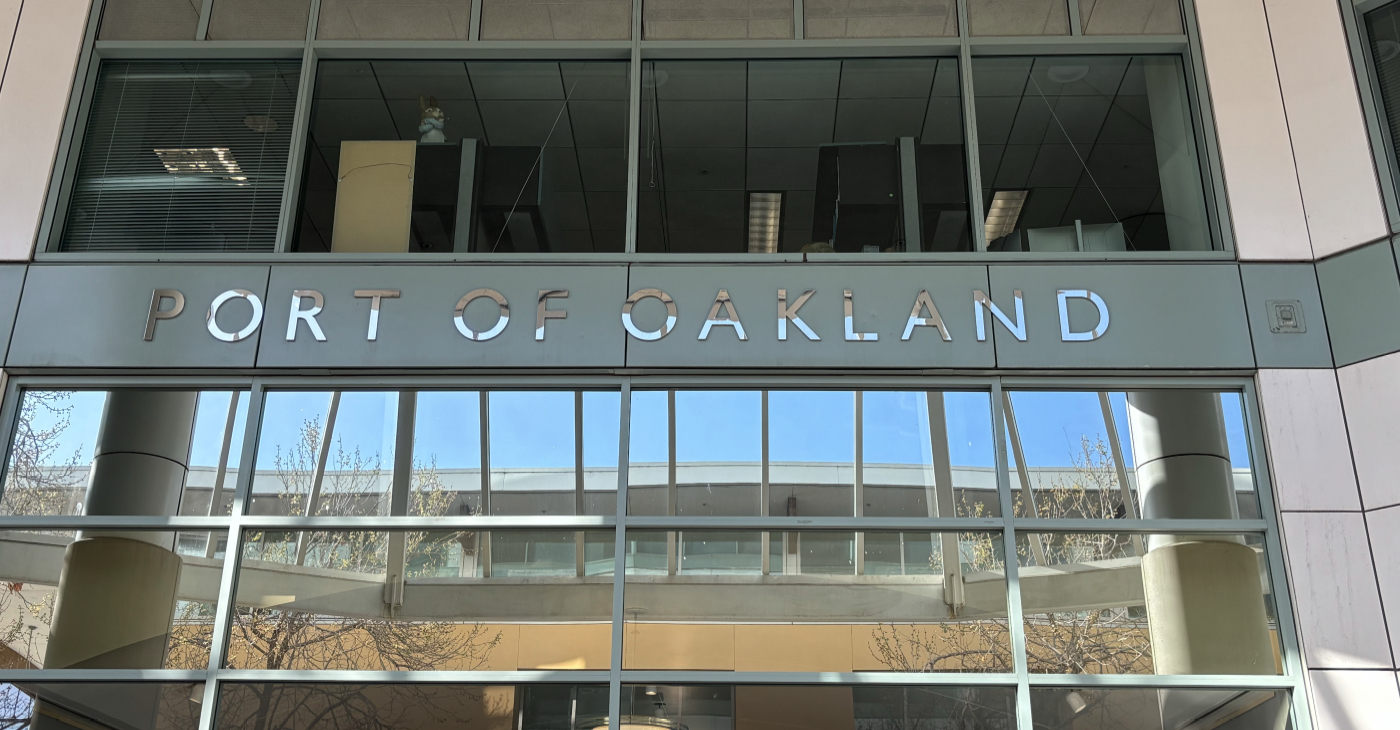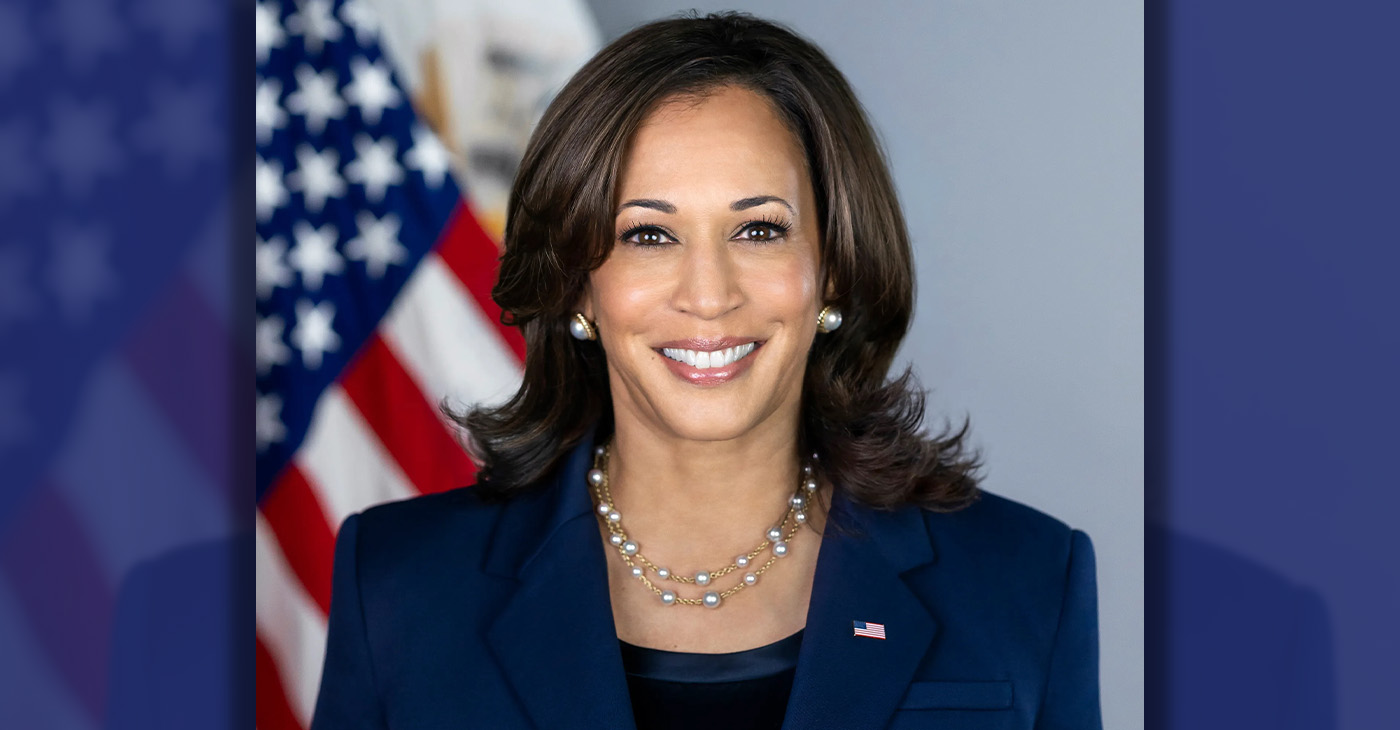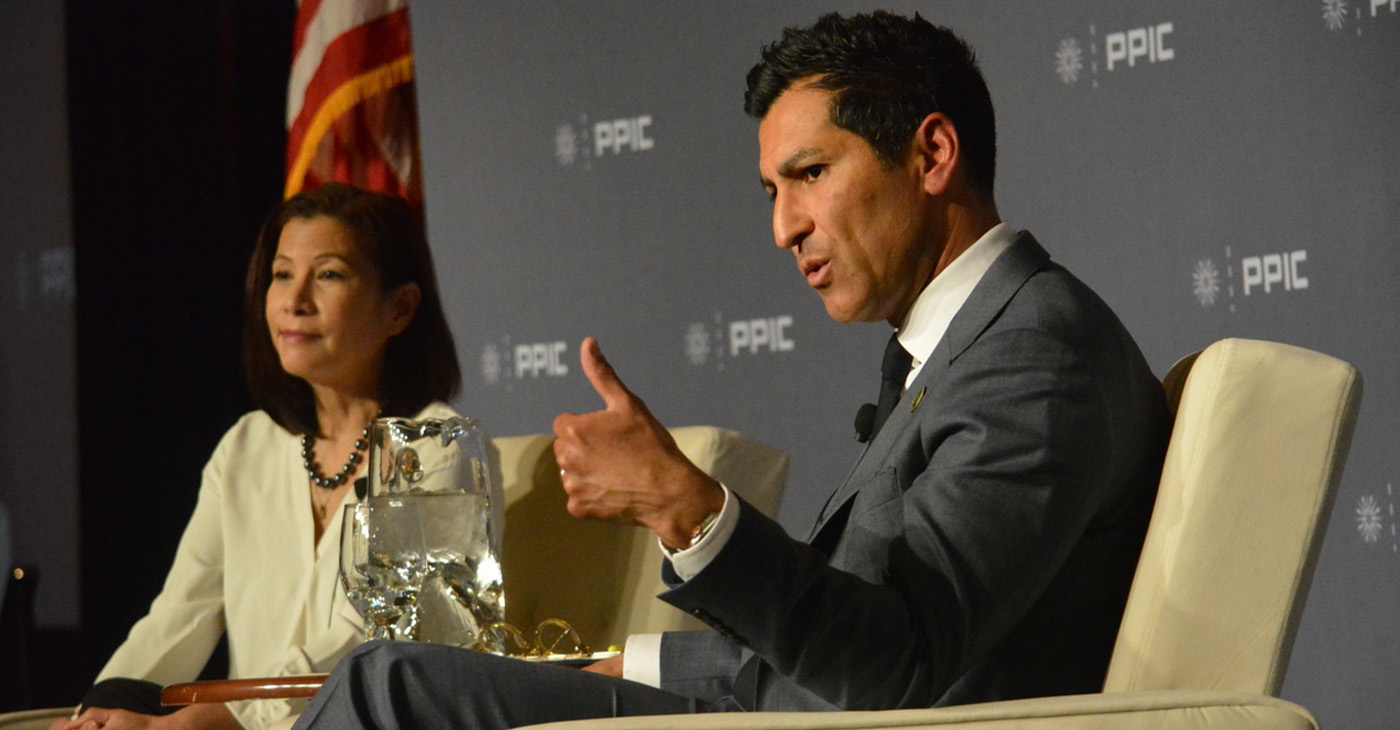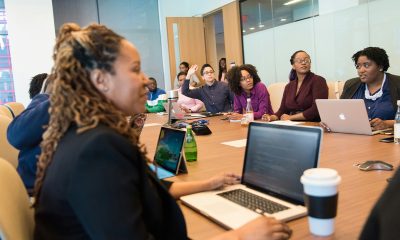Economy
The high costs of student loan debt
MINNESOTA SPOKESMAN-RECORDER — For the Class of 2018, the average student borrower graduated with a debt of $29,800 in private and federal loans over the course of a bachelor’s degree. This is in addition to $35,600 in federal Parent PLUS loans approximately 14 percent of parents took out to support their children.
There’s no way around it: Americans are drowning in student loan debt. The Federal Reserve reports that nearly 50 million Americans collectively owe $1.5 trillion in student loan debt. That’s $521 billion more than the total U.S. credit card debt.
For the Class of 2018, the average student borrower graduated with a debt of $29,800 in private and federal loans over the course of a bachelor’s degree. This is in addition to $35,600 in federal Parent PLUS loans approximately 14 percent of parents took out to support their children.
Nearly 70 percent of student borrowers now have a looming bill over our heads each month — and it’s not cheap. The average monthly student bill is $393.
This is debt that’s impossible to discharge in bankruptcy, difficult to have forgiven and increasingly unlikely to be fully repaid on schedule. And, rising college costs mean that number isn’t likely to drop much in the next few decades.
Here’s a look at the costs of that debt and what’s being done to lessen the crisis.
The Direct Costs
While college costs are rising, family incomes have not. So those with student debt loans are making different money management choices. They are less likely to buy homes or start families, and more likely to live at home and take jobs just to make ends meet, instead of the more lucrative positions for which their degrees prepared them.
Short-term solutions include deferring loans by returning to school, or consolidating or borrowing from private lenders, which ends up making the problem worse. For students graduating into a tight job market whose credit ratings are impacted by the amounts they owe, loan debt can remain their chief financial concern for decades. Especially when 11.5 percent are delinquent on their payments.
What’s more, the expanding student loan bubble could rattle the entire American economy in similar ways to the 2008 housing crisis, if borrowers default on loans in large numbers.
The Hidden Costs
The direct costs of student loan debt are obvious, but hidden costs often prevent lower-income students from pursuing the highest-value degrees.
Because the most selective, prestigious institutions are also the most expensive, those institutions are disproportionately populated by students from affluent families able to afford the burden of early-career debt.
And the recent trend of “differential pricing,” in which tuition costs are dictated by a student’s field of study, has had an effect on enrollment in high-employment fields, potentially scaring off the students who could benefit the most from an in-demand degree.
Avoiding high loan debt
While there is no limit to the amount of “free money” students can apply for, scholarships and grants only cover 28 percent of college costs today. That means more than two-thirds of the bill is either borrowed or paid out of pocket (for, most it’s the former). If you’re still in school, explore all of your scholarship options — whether based on grades, special interests or even ethnic backgrounds. Every extra dollar counts.
Also, only take out as much as you need. While in school, it’s tempting to take the full loan amount offered to help cover other bills. But that extra $1500 or $2500 every semester adds up to extra debt once you’ve graduated or left school and will cost you more in the long run.
For those concerned that scholarships may affect financial aid, organizations like Scholarship America are mobilizing nationwide efforts to change that. The organization has lent support to efforts to create a network of postsecondary institutions, or Collegiate Partners, that agree to not punish scholarship recipients with reductions in financial aid. Scholarship American also has a Dreamkeepers Emergency Financial Assistance program that gives students facing unexpected expenses an alternative to loans.
“We work with partners to incorporate mentoring, tutoring and financial literacy education into scholarship awards in an effort to help students persist and graduate rather than drop out with debt or get stuck short of a degree,” said Scholarship American President and CEO Robert C. Ballard.
For those who have already accrued student loan debt, the best course of action is to tackle it head-on. Make a plan and work through it. Ignoring the bill won’t make it go away; in fact, it will just keep growing.
Information provided, in part by, StatePoint.
This article originally appeared in Minnesota Spokesman-Recorder.
Bay Area
Port of Oakland Commission Votes to Change Oakland Airport to ‘San Francisco Bay Oakland International Airport’
The Port of Oakland Commission voted unanimously to change the name of Metropolitan Oakland International Airport to San Francisco Bay Oakland International Airport at a commission meeting Thursday afternoon. The Port initially announced the name change on March 29, claiming that the change will attract more passengers and enhance the airport’s visibility. They contend that the airport often gets neglected by the public’s lack of knowledge of Oakland’s proximity to San Francisco.

By Magaly Muñoz
The Port of Oakland Commission voted unanimously to change the name of Metropolitan Oakland International Airport to San Francisco Bay Oakland International Airport at a commission meeting Thursday afternoon.
The Port initially announced the name change on March 29, claiming that the change will attract more passengers and enhance the airport’s visibility. They contend that the airport often gets neglected by the public’s lack of knowledge of Oakland’s proximity to San Francisco.
“We want people to know where Oakland is and how beautiful our city is. We want them to visit, we want them to spend their money, and we want to keep our money into our local economy,” Port Commission President Barbara Leslie said at the meeting.
The commissioners shared anecdotal experiences and research to explain how this new name change will elevate and add to the growth of Oakland, not take away from their Bay Area neighbors.
The Port claimed that local residents had been asking for more options in domestic and international flights, but in order to do that, outside travelers need to be aware of Oakland’s presence first.
Since the announcement of the new name, San Francisco leaders strongly opposed the suggestion for a change, the City Attorney going as far as threatening legal action.
SF City Attorney David Chiu announced Monday that his team sent a letter to the Port of Oakland, writing that if Oakland goes forward with the name change, the city will go forward with a lawsuit to prevent the use of their trademarked name.
San Francisco owns U.S. federal trademark registrations for the marks “San Francisco International Airport”, the letter says.
Chiu further claimed that the name change will only cause confusion and chaos for travelers who are used to seeing the San Francisco name in the SFO trademark.
“We want to see the entire Bay Area thrive as a tourist destination and expand our offerings to visitors, but this proposal is not a legal or practical way to go about it. If Oakland moves forward with this proposal, San Francisco will pursue legal action to prevent misuse of our trademark,” Chiu said.
SF Mayor London Breed joined Chiu’s letter, stating that Oakland does not need to add the internationally popular city to its brand in order to grow its services.
“[Oakland] is rich in culture and wonderful people and has its own unique identity. It does not need the name San Francisco as part of its airport to stand out,” Breed wrote.
The Port defended its proposed actions, saying that if the vote did go forward, they would “take all appropriate measures to defend its right to use this accurate geographic identifier.”
“The proposed name modification will clarify, not confuse. The new name identifies where OAK is actually located, which is on the San Francisco Bay,” a spokesperson said on behalf of the Port.
Support for the name change extends beyond the Port. Several regional leaders, airlines and community members have come out in support of the name change, including Oakland Mayor Sheng Thao.
“This adjustment isn’t just about signage—it’s about inviting travelers to discover all that Oakland and the region have to offer. From our local dining scene to unique shopping spots and cozy hotels, there’s something here for everyone. Let’s work together to ensure that Oakland Airport continues to serve as a welcoming gateway for visitors and a source of pride for our community,” Thao said.
Because of public outcry amongst residents and leaders in Oakland and San Francisco before and during the Commission meeting, the Board decided to extend the second reading for the proposed name change from the end of April to the first meeting in May. This decision will allow commissioners to connect with community groups and leaders over their concerns for the change.
The Port Commission is scheduled to hold a second reading of the proposed name change on May 9.
Business
V.P. Kamala Harris: Americans With Criminal Records Will Soon Be Eligible for SBA Loans
Speaking in Las Vegas on Jan. 27, Vice President Kamala Harris announced a forthcoming federal rule that will extend access to Small Business Administration (SBA) loans to Americans who have been convicted of felonies but have served their time. Small business owners typically apply for the SBA loans to start or sustain their businesses.

By California Black Media
Speaking in Las Vegas on Jan. 27, Vice President Kamala Harris announced a forthcoming federal rule that will extend access to Small Business Administration (SBA) loans to Americans who have been convicted of felonies but have served their time.
Small business owners typically apply for the SBA loans to start or sustain their businesses.
Harris thanked U.S. Rep. Steven Horsford (D-NV-04), the chair of the Congressional Black Caucus, for the work he has done in Washington to support small businesses and to invest in people.
“He and I spent some time this afternoon with business leaders and small business leaders here in Nevada. The work you have been doing to invest in community and to invest in the ambition and natural capacity of communities has been exceptional,” Harris said, speaking to a crowd of a few hundred people at the Brotherhood of Electrical Workers Hall in East Las Vegas.
On her daylong trip, Harris was joined by Horford, SBA Administrator Isabella Guzman, Interim Under Secretary of Commerce for Minority Business Development Agency (MBDA) Eric Morrissette, and Sen. Catherine Cortez Masto (D-Nev).
“Formerly incarcerated individuals face significant barriers to economic opportunity once they leave prison and return to the community, with an unemployment rate among the population of more than 27%,” the White House press release continued. “Today’s announcement builds on the Vice President’s work to increase access to capital. Research finds that entrepreneurship can reduce recidivism for unemployed formerly incarcerated individuals by as much as 30%.”
Community
The Year Ahead: Assembly Speaker Rivas Discusses Priorities, Problems
Assembly Speaker Robert Rivas shared his legislative priorities and vision for the future of California during a luncheon hosted by the Public Policy Institute of California (PPIC) in downtown Sacramento.

By Antonio Ray Harvey, California Black Media
Assembly Speaker Robert Rivas shared his legislative priorities and vision for the future of California during a luncheon hosted by the Public Policy Institute of California (PPIC) in downtown Sacramento.
Titled a “Conversation with Assembly Speaker Robert Rivas” for PPIC’s 2024 Speaker Series on California’s Future, the 44-year-old Democrat lawmaker from Hollister, who represents the 29th Assembly District, is the 71st speaker of the Assembly.
The discussion at the Sheraton Hotel took place about two weeks after Gov. Gavin Newsom presented his $291 Billion January budget proposal.
“These are going to be difficult times,” Rivas said of the task of balancing a budget that has been estimated separately by the Department of Finance and Legislative Analyst’s Office to have a deficit between $38 billion and $68 billion. “It’s going to underpin everything we get done this year. It’s going to impact everything.”
PPIC’s Speaker Series on California’s Future allows “leaders, lawmakers, and changemakers with diverse perspectives to participate critically, constructively, and collaboratively in public conversations,” according to PPIC.
PPIC president and Chief Executive Officer Tani Cantil-Sakauye was the moderator of the 60-minute discussion that about 200 guests attended.
Rivas said right after he was sworn in as the Assembly leader that among his top priorities are mental and medical wellness, public safety, affordable housing, homelessness, education, the state’s entry-level scientists’ wages, and climate change.
He added that his goal is to focus on both urban and rural areas across the state, including improving public services and infrastructure. He explained that wildfires, flooding, droughts, and agriculture productivity are additional concerns.
Rivas shared that legislators should have goals of “addressing critical issues” that lead to “progress, affordability, and improving day-to-day” quality of life for all residents in California.
“These issues are consistent across the state. I prioritize no region over the other,” Rivas told Cantil-Sakauye, the former chief justice of the California Supreme Court.
During the question-and-answer portion of the conversation, Michael L. Younger, the Vice President of Workforce, Strategy, and Innovation at Calbright College asked Rivas about how the state can help individuals with workforce training and achieve labor success without relying on traditional colleges and university.
“(I am) speaking to those who may not see themselves on the college track but also have value to society,” Younger asked Rivas.
In his response, Rivas said the labor force needs individuals with work training skills, especially with the rise and usage of artificial intelligence.
“The need to have that transition can’t come soon enough but at the same time we have a responsibility to train displaced workers,” Rivas said.
Carmen-Nicole Cox, director of Government Affairs for American Civil Liberties Union – California Action, asked the Speaker would he accept the “community’s invitation” to take a public health approach to addressing public safety rather than one that criminalizes, demoralizes and focuses on incarceration.
Rivas responded to Cox’s question by explaining that an impartial evaluation of public safety should be made initially before providing a resolution.
“Our approach to addressing public safety is to, first, listen, to be fair throughout our process and to find solutions. Does that include addressing public health? Absolutely,” he said.
-

 Activism4 weeks ago
Activism4 weeks agoOakland Post: Week of March 20 – 26, 2024
-

 #NNPA BlackPress3 weeks ago
#NNPA BlackPress3 weeks agoCOMMENTARY: D.C. Crime Bill Fails to Address Root Causes of Violence and Incarceration
-

 #NNPA BlackPress3 weeks ago
#NNPA BlackPress3 weeks agoMayor, City Council President React to May 31 Closing of Birmingham-Southern College
-

 #NNPA BlackPress3 weeks ago
#NNPA BlackPress3 weeks agoFrom Raids to Revelations: The Dark Turn in Sean ‘Diddy’ Combs’ Saga
-

 #NNPA BlackPress4 weeks ago
#NNPA BlackPress4 weeks agoCOMMENTARY: Lady Day and The Lights!
-

 Activism3 weeks ago
Activism3 weeks agoOakland Post: Week of March 27 – April 2, 2024
-

 #NNPA BlackPress4 weeks ago
#NNPA BlackPress4 weeks agoBaltimore Key Bridge Catastrophe: A City’s Heartbreak and a Nation’s Alarm
-

 #NNPA BlackPress4 weeks ago
#NNPA BlackPress4 weeks agoBaltimore’s Key Bridge Struck by Ship, Collapses into Water
















































